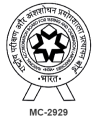Frequently Asked Questions
How do I prepare for cardiothoracic or vascular surgery?
Preparation for surgery involves a series of important steps to ensure your safety and comfort. You may be asked to stop certain medications a few days before surgery, fast for a specific number of hours, and arrange transportation to and from the hospital. Our doctors will review your medical history and perform necessary pre-surgical tests, such as blood work and imaging, to ensure you are ready for the procedure. Please follow any instructions provided by our doctors and team, and feel free to ask any questions you may have.
What should I bring with me to the hospital for my surgery?
For your surgery, please bring your insurance information, identification card, prescription, a list of your medications, and any relevant medical records. If you expect an overnight stay, you may wish to bring personal items like comfortable clothing, and toiletries. Avoid bringing valuables, and let our team know if you have any specific needs or preferences for your stay.
What happens during open-heart surgery or other cardiothoracic procedures?
Cardiothoracic procedures, such as open-heart surgery, involve specialized techniques to repair or replace parts of the heart, lungs, or major blood vessels. The procedure is typically performed under general anesthesia, and a team of skilled surgeons and anesthesiologists will closely monitor your vital signs. Our surgeons will walk you through the specific steps of your surgery, explaining what will be done and how it will improve your health.
How long does a typical cardiothoracic or vascular surgery take?
The length of surgery depends on the complexity of the procedure. Most cardiothoracic surgeries take between 3 to 6 hours, while certain vascular surgeries may take less or more time. Our surgeons will give you an estimated timeframe before the procedure. After surgery, you’ll be taken to a recovery area where our team will monitor you closely to ensure you are stable and comfortable.
What should I expect during recovery after cardiothoracic surgery?
Recovery after cardiothoracic surgery can vary, but most patients spend a few days in the hospital before returning home. Initially, you may experience fatigue, mild discomfort, or soreness at the incision site, which is normal. Our medical team will provide pain management and guidance on gradually resuming activities. Full recovery can take several weeks, and follow-up appointments will help us monitor your progress.
When can I return to work and normal activities?
Your return to work and daily activities will depend on the type of surgery and your overall health. Patients typically resume light activities within a few weeks and can return to work in about 6 to 8 weeks, depending on their recovery progress. We advise patients to avoid heavy lifting, strenuous activities, and driving until they have received clearance from our surgeons.
What are the risks associated with cardiothoracic and vascular surgeries?
Cardiothoracic and vascular surgeries, while generally safe, carry some risks, including infection, bleeding, and complications related to anesthesia. Other risks depend on the specific procedure and your health condition. Our team takes every precaution to minimize risks and will discuss potential complications with you to ensure you feel informed and prepared.
What are the benefits of undergoing cardiothoracic or vascular surgery?
Cardiothoracic and vascular surgeries can greatly improve quality of life by relieving symptoms, reducing the risk of further complications, and, in many cases, extending life expectancy. These surgeries often address issues such as blocked arteries, heart valve problems, or aneurysms, providing relief and a better outlook for heart and vascular health. Our surgeons will explain how the surgery benefits your specific condition.
How can I support my recovery and ensure the best outcome after surgery?
Following our doctor’s instructions carefully is key to a smooth recovery. Take prescribed medications as directed, attend all follow-up appointments, and gradually increase physical activity as advised. Eating a balanced diet, staying hydrated, and avoiding smoking or alcohol can further support your healing. If you experience any unusual symptoms, such as fever, excessive pain, or trouble breathing, contact us right away for assistance.



